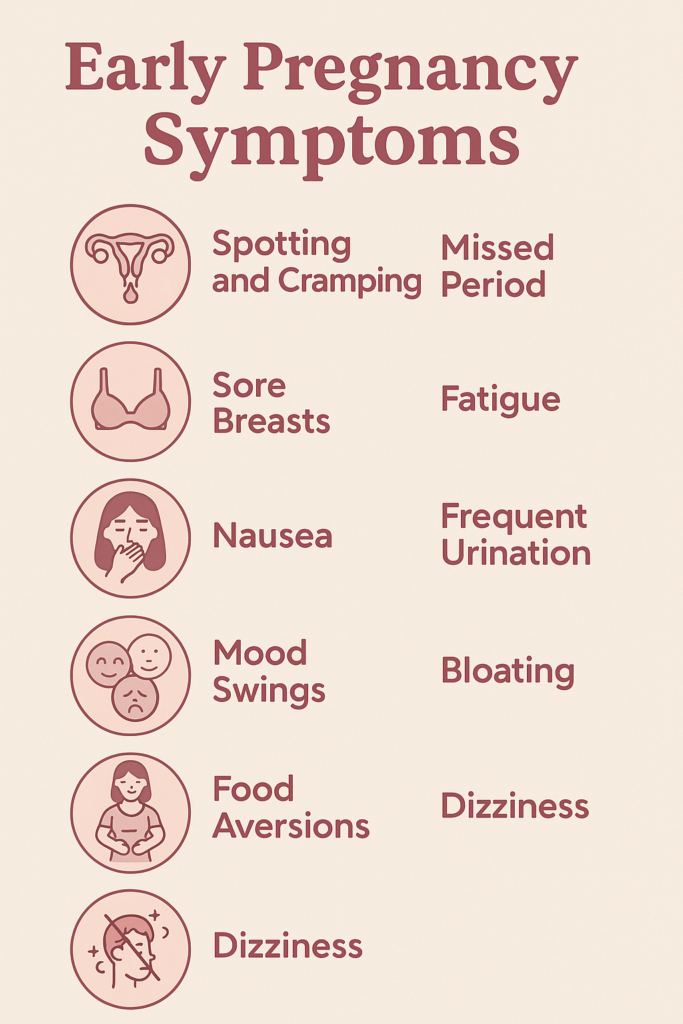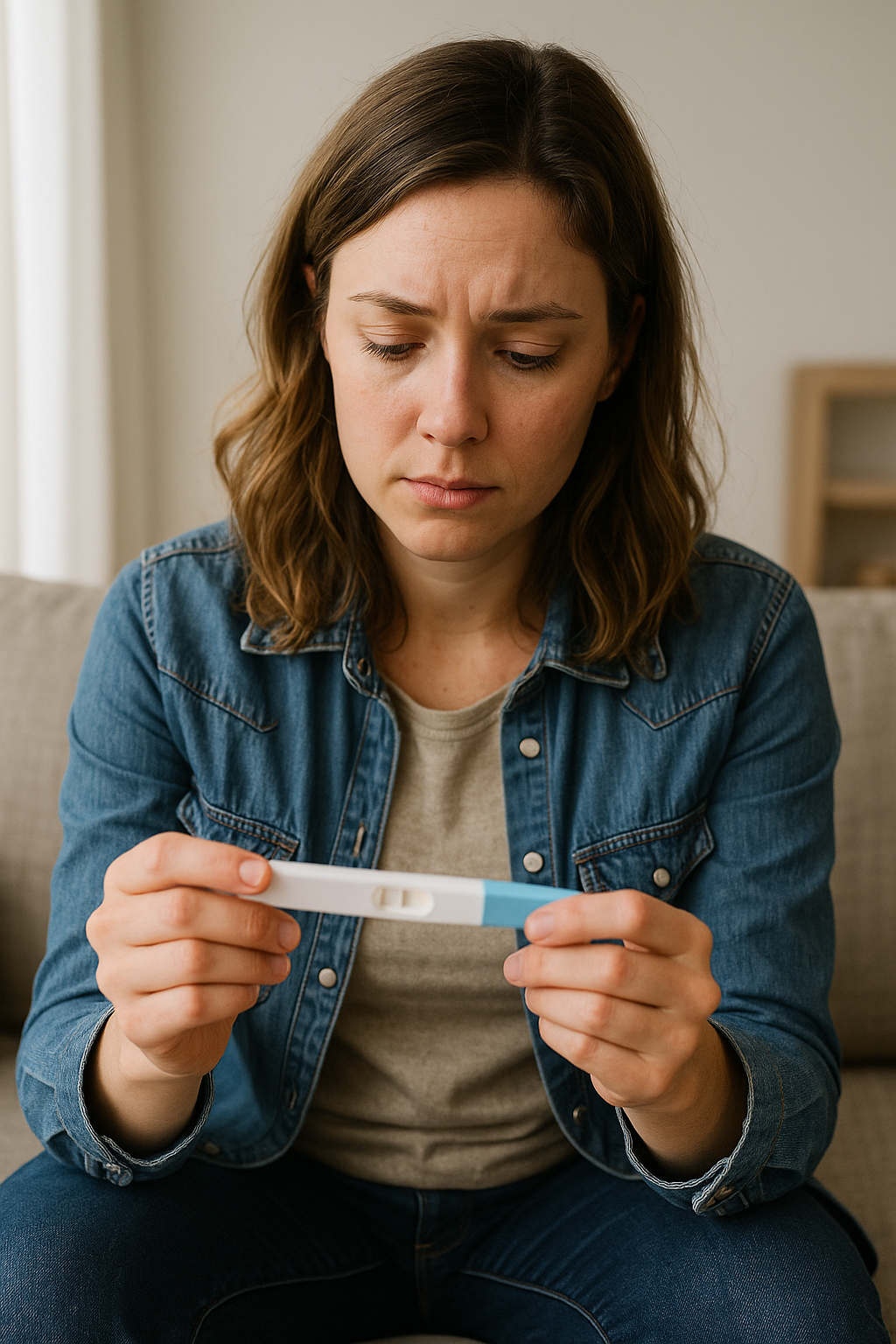Early Pregnancy Symptoms: The Subtle Signs You Might Be Expecting
Pregnancy has a funny way of sneaking up on you. One week you’re blaming your mood on PMS, the next you’re standing in the drugstore staring at a wall of pregnancy tests, wondering if your body is trying to tell you something. The truth is, many early pregnancy symptoms feel exactly like what you experience before your period. But if you know what to look for, there are a few telltale hints that a baby may already be on board.

Spotting and Cramping That Feels “Different”
Around 10 to 14 days after conception, the fertilized egg burrows into the uterine lining. This can trigger light bleeding known as implantation spotting. It’s usually much lighter than a period—think pink or brown smudges rather than full-on flow. Mild cramps can tag along too. Of course, many women confuse this with an early or “weird” period. The difference? It often doesn’t last long, sometimes just a day or two.
The Missed Period: The Classic Symptom
If your cycle is clockwork and suddenly your period doesn’t show up, pregnancy is the most obvious explanation. But keep in mind, stress, illness, or even travel can also throw off your cycle. That said, if you’re late and there’s a chance you conceived… the odds are worth considering.
Sore, Swollen, or Tingly Breasts
Your boobs might give away the secret before anything else does. Hormonal shifts in early pregnancy can make them sore, sensitive, or heavier than usual. Some women even notice darker areolas or more visible veins. If your bra feels like a medieval torture device out of nowhere, your hormones may already be working overtime.
Fatigue That Hits Hard
Yes, being tired is basically the default setting for adulthood. But pregnancy fatigue? It’s next-level. Thanks to surging progesterone, your body is suddenly in “let’s grow a human” mode. Even if you’re sleeping plenty, you may feel like you could nap on your lunch break, your commute, or while binge-watching Netflix. This can start just a week or so after conception.
Nausea and the Infamous “Morning” Sickness
Spoiler alert: morning sickness doesn’t care about the time of day. For many women, queasiness strikes anytime—morning, afternoon, midnight. It often shows up around week 4 to 6 and can stick around until the end of the first trimester. Smells you used to love—coffee, perfume, your partner’s cologne—might suddenly send you running.
Bathroom Breaks All. The. Time.
If you’re suddenly peeing every hour, thank your hormones (and your kidneys, which are working overtime). Frequent urination can start shockingly early, even before you notice other symptoms. Fun fact: it’s not just the pressure of a growing baby later on—hormones actually increase blood flow to your kidneys in the first few weeks.
Mood Swings and Emotional Whiplash
One minute you’re crying at a dog food commercial, the next you’re ready to snap because someone chewed too loudly. Hormonal changes can mess with your mood long before the bump shows up. While this can feel a lot like PMS, some women say the emotions are even more intense during early pregnancy.
Bloating and Digestive Changes
If your jeans suddenly feel tighter but you’re pretty sure last night’s tacos aren’t to blame, it might be hormones again. Progesterone slows down digestion, which can lead to bloating, constipation, or just feeling “off.” It’s one of those sneaky signs you might not connect to pregnancy right away.
Heightened Sense of Smell and Strange Food Aversions
You might notice that everyday scents—like the smell of your coworker’s sandwich or the grocery store meat counter—make your stomach turn. At the same time, foods you once loved might suddenly be completely unappealing. On the flip side, cravings can also kick in early (pickles at 10 a.m., anyone?).
Dizziness and Lightheadedness
As your blood vessels expand and your blood pressure dips, you might feel dizzy when you stand up too quickly. Combine that with lower blood sugar, and lightheadedness becomes a common early complaint.
So, Am I Pregnant or Not?
Here’s the catch: every single symptom above can also be explained by something else. PMS, stress, a change in routine, even just bad sleep can mimic pregnancy symptoms. That’s why the only real way to know is to take a pregnancy test. The good news? Home tests are accurate, easy, and can usually detect pregnancy around the time your period is due.






